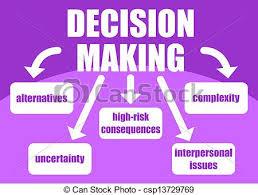Have you noticed that some people deal with life's problems better than others?
Obvious? Yes.
But, have you thought about why that is.
This just means that some people - for instance - make it known to others how bad things are, and some people are "problem solvers."
It is asserted here that the people in these groups both have common human problems, even the one who deals with it better.
It is not necessarily true that ones who deal with problems better have fewer problems.For the purposes of this post, an example will be used.
Since the author works at a non-profit for the homeless, the homeless will be used for illustration - one with a substance abuse problem.
Here are the two groups:
- Those constantly dissatisfied because things are not ideal. They ask why some people have it better off than them, and they think it is unjust.
- People who look at their situation and analyze it. Instead of asking why things aren't ideal, they look at how to practically make the best of the alternatives that are realistic.

If you look at self-help books or A.A., the first step usually involves acknowledging that there is a problem. In other words, you accept to one degree or another that things are not ideal.
You can witness this is daily life in general.
There are those who:
a. channel their energy into telling others how unjust things are, and
b. channel their energy into making the most of the realistic alternatives.
Those in group 1 and a above, for instance, might say something like, "substance abuse doesn't affect anyone else, so what is the problem?" In relating this to the homeless, they might ask why there aren't emergency shelters that accept those with substance abuse , who aren't working on stopping.
Those in groups 2 and b above, however, would accept that is not an alternative, and move to what is the next, best alternative overall.
An example of this might be when the decision came about whether to drop nuclear bombs on Japan. No rational person would really want to do that. (If you did, there might be some level of mental illness involved)
Humans were not created in a way to do that to other humans.
What it came down to is: what are the realistic alternatives? A land invasion of Japan, which military analysts thought would involve over a million deaths? A prolonged war with countless civilian deaths?
As horrible as it was (and it is) a decision was made based on the alternatives at the given time. (By the way, the author has doubts about this decision)
Does that mean he is all evil and hates people? Some might say that, but he would probably answer that he saved a large number of human lives by his decision.
And, Harry Truman later said he would make the same decision again if he had to.
It was no doubt difficult and painful to even think about. Also, it does not intend to diminish what people went through.
Easy? no. Realistic? probably.
What he didn't do as much of is just say, "What if?" No one should have to experience a nuclear bomb. But he inherited the position he was in, and he did not create it by himself.
Things could always be better, in a manner of speaking. But how much you focus on that makes a difference.
Doesn't the Tenth Commandment talk about coveting what someone else has?
This principle can apply to many areas of your life.

